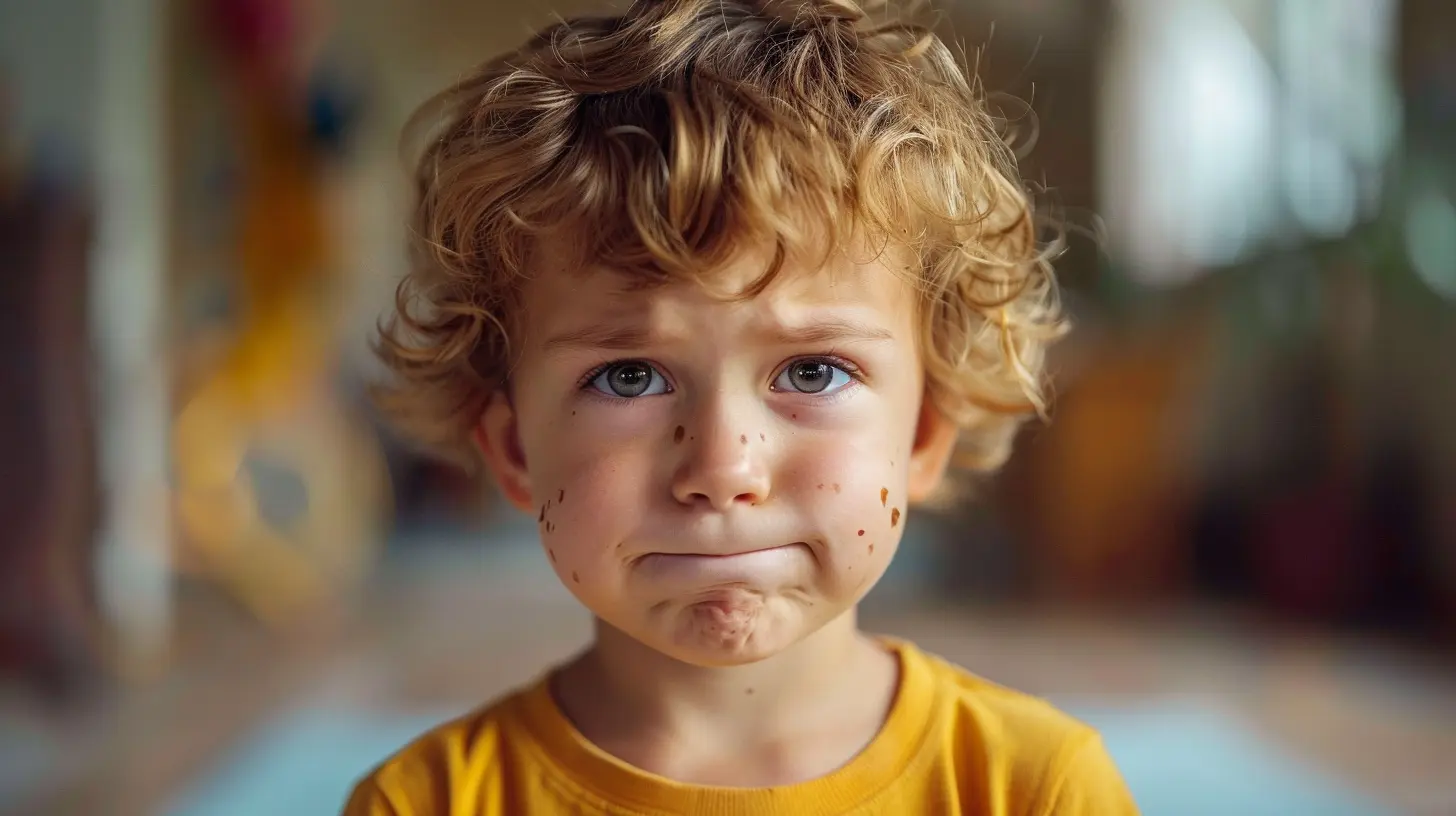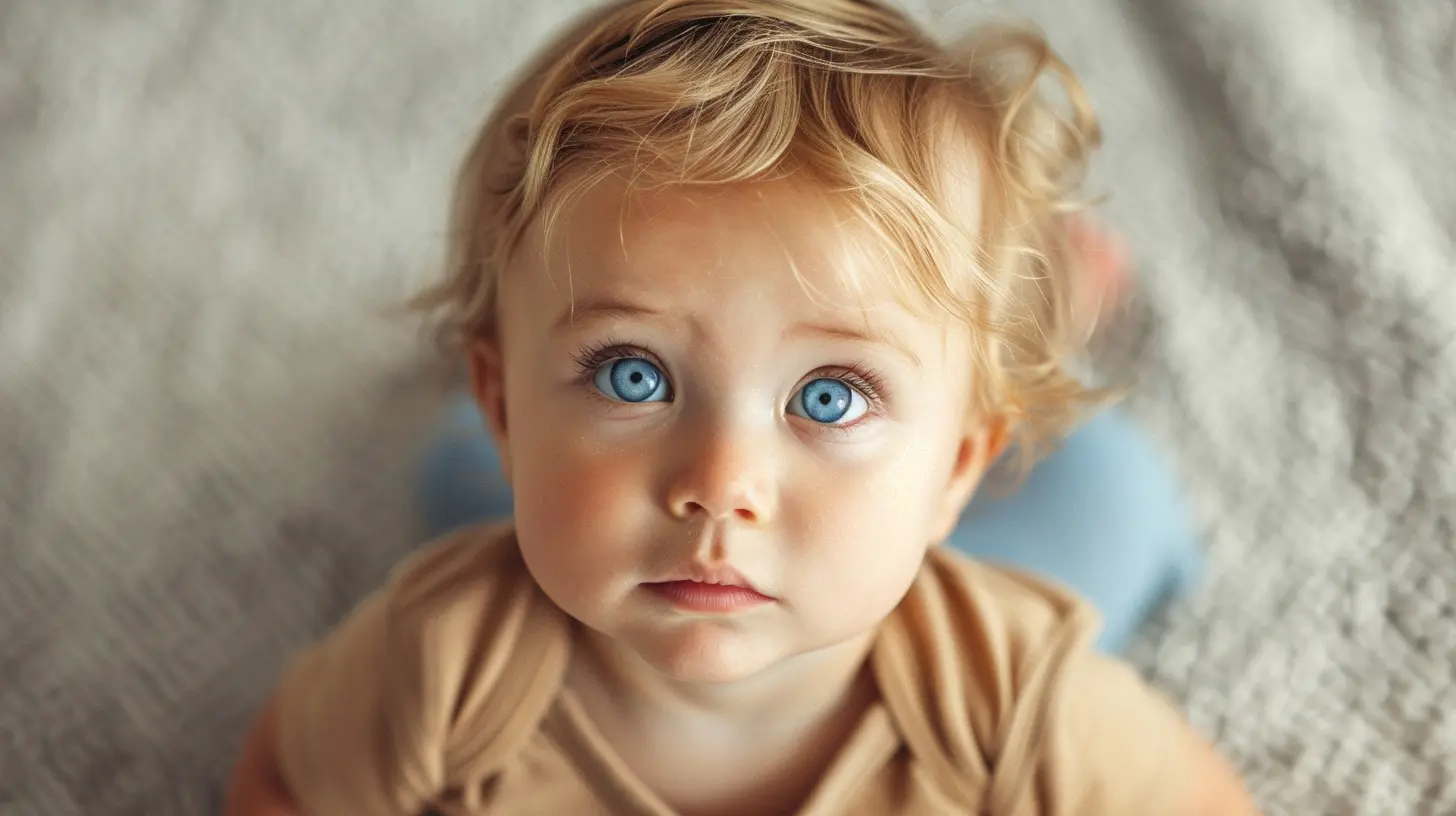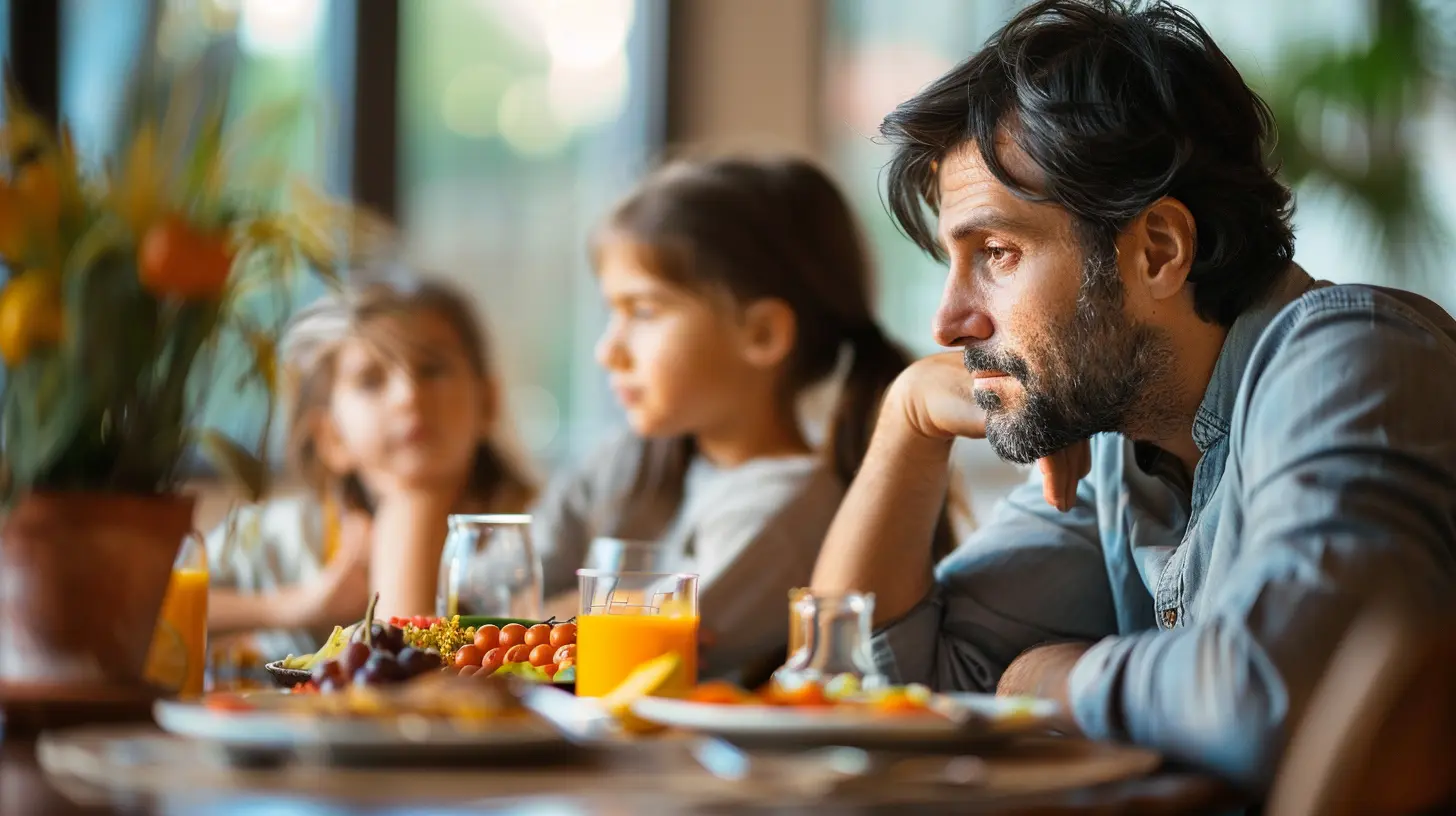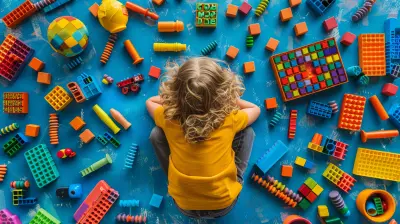The Impact of Parenting Styles on Emotional Development
13 June 2025
Let’s get one thing straight—raising kids isn’t just about feeding them organic snacks and enrolling them in violin lessons at age four. It’s about shaping tiny humans into emotionally intelligent, self-aware, and (hopefully) functional adults. And guess what? The way you parent plays a huge role in that emotional development. Yup, your parenting style is more than just a vibe—it’s a blueprint for how your child will navigate the messy world of feelings.
So, if you’re wondering whether your “Because I said so!” approach is helping or hurting, keep reading. We’re about to unpack how your parenting strategy can make or break your child’s emotional mojo.
What Exactly Is Emotional Development?
Before we start pointing fingers at parenting styles, let’s get our heads around what emotional development even is. In short, it’s about how a kid understands, expresses, and manages their emotions. It includes things like:- Recognizing emotions in themselves and others
- Expressing feelings in healthy ways
- Developing empathy (yes, that magical emotional superpower)
- Building emotional resilience (so they don’t crumble the first time life says “no”)
Kids aren’t born with emotional intelligence—it's taught, modeled, and reinforced. And no pressure, but YOU are their first emotional teacher.
Types of Parenting Styles: The Big Four
Psychologists have identified four main parenting styles, and spoiler alert: not all of them make for emotionally thriving kids. Let's break it down sass-style, shall we?1. Authoritative Parenting – AKA The Gold Standard
Think: Firm but warm. Structure with a side of hugs.Authoritative parents set rules, but they also value their kid’s opinions. They enforce boundaries (like no, you can’t have ice cream for breakfast), but they explain why and show empathy.
Impact on Emotional Development
Kids raised by authoritative parents usually knock it out of the emotional park. They tend to:
- Feel secure and confident
- Develop strong self-regulation skills
- Handle stress like mini Zen masters
- Have solid social skills (teachers love these kids)
It’s the sweet spot between discipline and love—a delicate dance between "I'm the boss" and "I hear you, babe."
2. Authoritarian Parenting – The Old School Drill Sergeant
Think: “Because I said so,” high expectations, low warmth.Authoritarian parents lay down the law—no questions asked. Rules are rigid, punishments are harsh, and emotional expression? Nope, not in this house.
Impact on Emotional Development
These kids often struggle. Sure, they might follow rules, but at what cost?
- Low self-esteem
- Fear-based compliance
- Poor coping skills
- Bottled-up emotions (aka emotional constipation)
Basically, they’re ticking emotional time bombs. Not ideal.
3. Permissive Parenting – The “Cool Mom” Syndrome
Think: Besties with zero boundaries.Permissive parents say yes way too often. They're nurturing and warm but don't like to discipline. Why make the kids upset, right?
Impact on Emotional Development
It’s a mixed bag. While these kids feel loved, they often:
- Struggle with self-discipline
- Feel entitled (hello tantrums at age 10)
- Have a hard time respecting authority
- Get overwhelmed when the real world says “no thanks”
Love is great, but structure is the secret sauce. Without it, kids can feel lost—even when they’re ruling the roost.
4. Neglectful Parenting – The Ghost Mode Parent
Think: Emotionally M.I.A. or physically absent.Neglectful parents aren’t necessarily cold-hearted—they might be overwhelmed, depressed, or just uninformed. But the result is the same: minimal involvement.
Impact on Emotional Development
This one’s rough. These kids often:
- Feel unworthy or invisible
- Have poor emotional awareness
- Struggle with self-esteem and trust
- Are more vulnerable to mental health issues
When emotional needs go unmet, kids learn to suppress or ignore their feelings—not exactly a recipe for healthy emotional growth.
The Emotional Domino Effect
Let’s be real: emotional development doesn’t happen in a vacuum. It bleeds into everything—relationships, academics, career, even how your kid deals with that jerk who cuts them off in traffic one day.Here’s how parenting styles cause a ripple effect:
Emotional Regulation
Kids who grow up with supportive boundaries (hello, authoritative parents) learn how to manage stress, anger, and disappointment. They can ride the emotional rollercoaster without flying off the tracks.On the flip side, kids with authoritarian or neglectful parents might either bottle up emotions or explode like tiny emotional volcanoes. Not cute.
Empathy and Social Skills
Want your kid to be the one who comforts a crying classmate instead of laughing at them? Then model empathy yourself. Authoritative parenting fosters compassion, while authoritarian styles can create emotionally distant or judgmental kids.Self-Worth and Confidence
When kids are heard, respected, and guided—not controlled—they believe their feelings matter. That’s major for healthy self-esteem.If your parenting style screams “You’re only good when you do what I say,” don’t be surprised if your child struggles with confidence and self-doubt later on.
Real Talk: No One Is Perfect
Let’s get one thing straight—we all mess up. Maybe you yelled when you meant to negotiate. Or maybe you gave in to that 10 p.m. ice cream plea just to avoid a meltdown. Welcome to the club; it’s called “being human.”The key isn’t to be a perfect parent. It’s to be a reflective one. Ask yourself:
- What message am I sending with my reactions?
- Am I balancing empathy and structure?
- How do I handle my own emotions when parenting gets hard?
Parenting is a constant feedback loop. You learn, you grow, and yes—you’ll probably apologize to your kid at some point. That’s actually a GOOD thing. Modeling emotional honesty = emotional intelligence 101.
How to Shift Toward Healthier Parenting (Without Losing Your Mind)
If you're reading this and thinking, “Oh crap, I might be a bit more authoritarian than I thought,” take a breath. Change is possible—and it doesn’t mean becoming a doormat.Here’s how to level up your parenting game:
1. Set Clear Boundaries and Explain Them
Rules are important, but they shouldn't feel like prison bars. Let your kid know the “why” behind them. It builds trust and helps them internalize values instead of just obeying out of fear.2. Validate Feelings (Even the Dramatic Ones)
Your toddler freaks out over the wrong color cup? Don’t roll your eyes. Their feelings are real to them. Acknowledge, then guide.Try saying: “I see you’re upset the blue cup isn’t clean. That’s frustrating. We’ll use the green one today together.”
(Magic? Nope. Just respectful parenting.)
3. Be Consistent Without Being Rigid
Flexibility is not weakness—it’s wisdom. Life’s unpredictable, and kids need to see that it’s okay to adapt. Just don’t swing from “strict mom” to “anything goes” every other day. That’s emotional whiplash.4. Model Emotional Intelligence
Ever snapped and then regretted it? Own it!Try: “I got angry earlier, and I yelled. That wasn’t okay. I’m working on managing my frustration better.”
That single moment teaches more than a dozen lectures on self-control.
The Long-Term Payoff
Let’s fast-forward a bit. Your child is now a teen. Emotions are wild, hormones are raging, and they’re suddenly more interested in TikTok than family dinner. Scary, right?But if you’ve been fostering a healthy emotional foundation through your parenting style, here’s what you might notice:
- They come to you when life gets hard
- They can name and express their emotions clearly
- They’re resilient in the face of peer pressure and setbacks
- They respect others’ feelings and boundaries
Basically, they’re equipped for real-life adulting. And you? You get to breathe a little easier knowing you didn’t totally mess them up. (Phew.)
Final Thoughts: No Cape Required
Look, you don’t need to be a parenting superhero—just emotionally present. The impact of parenting styles on emotional development is real, but it’s not about being flawless. It’s about being intentional. Whether you lean more authoritative or still fall into permissive patterns, what matters most is that you’re trying, adjusting, and showing up.So, go ahead. Hug your kid. Set that boundary. Apologize when you mess up. And remember: every moment you parent with heart and backbone, you're building a stronger, more emotionally badass human being.
all images in this post were generated using AI tools
Category:
Emotional DevelopmentAuthor:

Maya Underwood
Discussion
rate this article
2 comments
Damon Acevedo
Who knew parenting could be a wild ride? 🎢 From 'authoritative' to 'permissive,' every style is like a unique flavor of ice cream—each with its own delightful (and sometimes messy!) consequences!" 🍦😄
June 15, 2025 at 4:35 AM

Maya Underwood
Absolutely! Just like ice cream, each parenting style shapes a child's emotional development in its own special way—sweet, challenging, and full of surprises! 🍦✨
Josephine Baxter
This article highlights how different parenting styles profoundly shape a child's emotional growth. Understanding and adapting our approaches can lead to healthier, more resilient future generations. A must-read!
June 14, 2025 at 2:42 AM

Maya Underwood
Thank you for your thoughtful comment! I'm glad you found the article insightful and important for fostering healthier emotional development in children.


